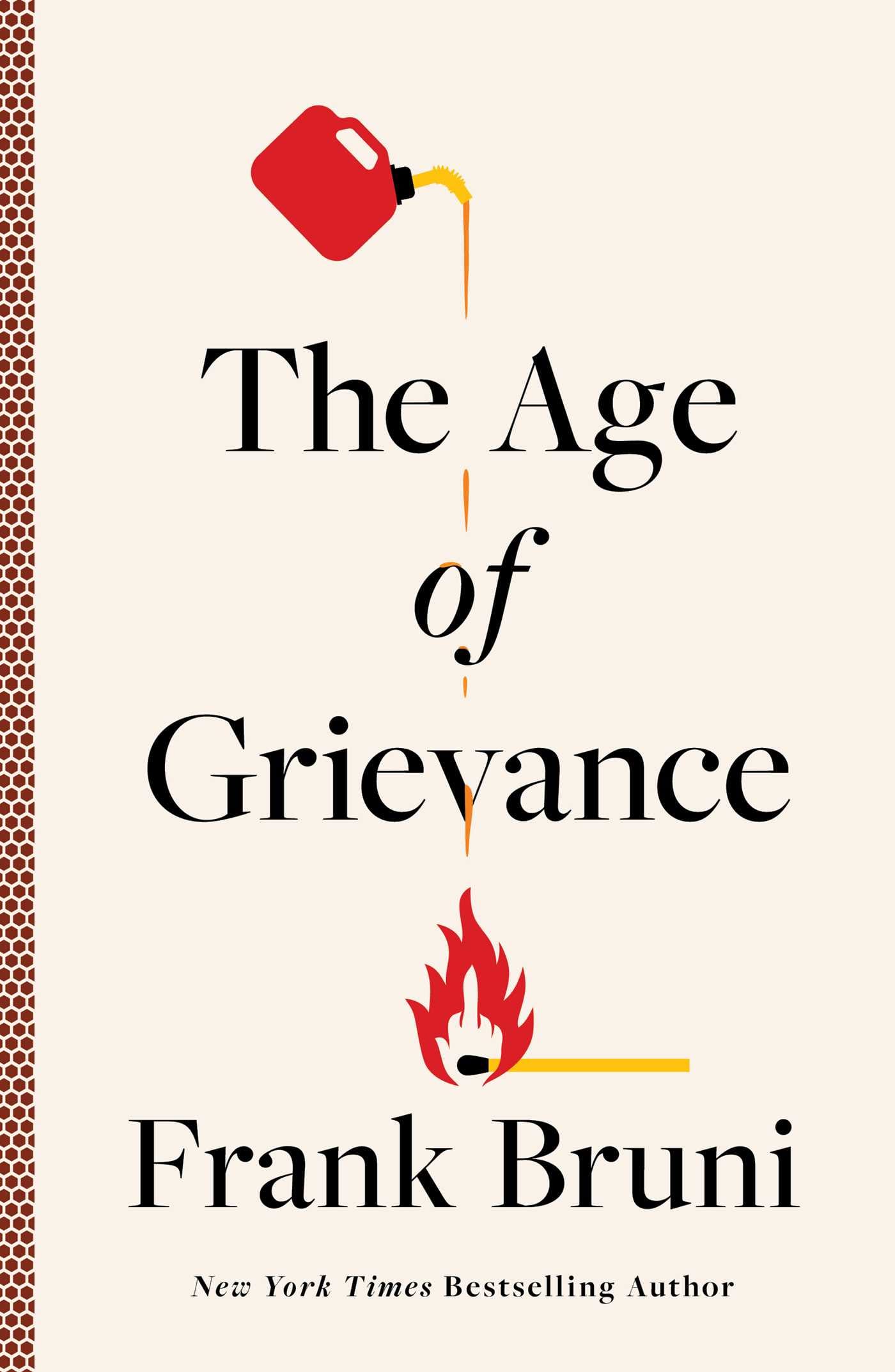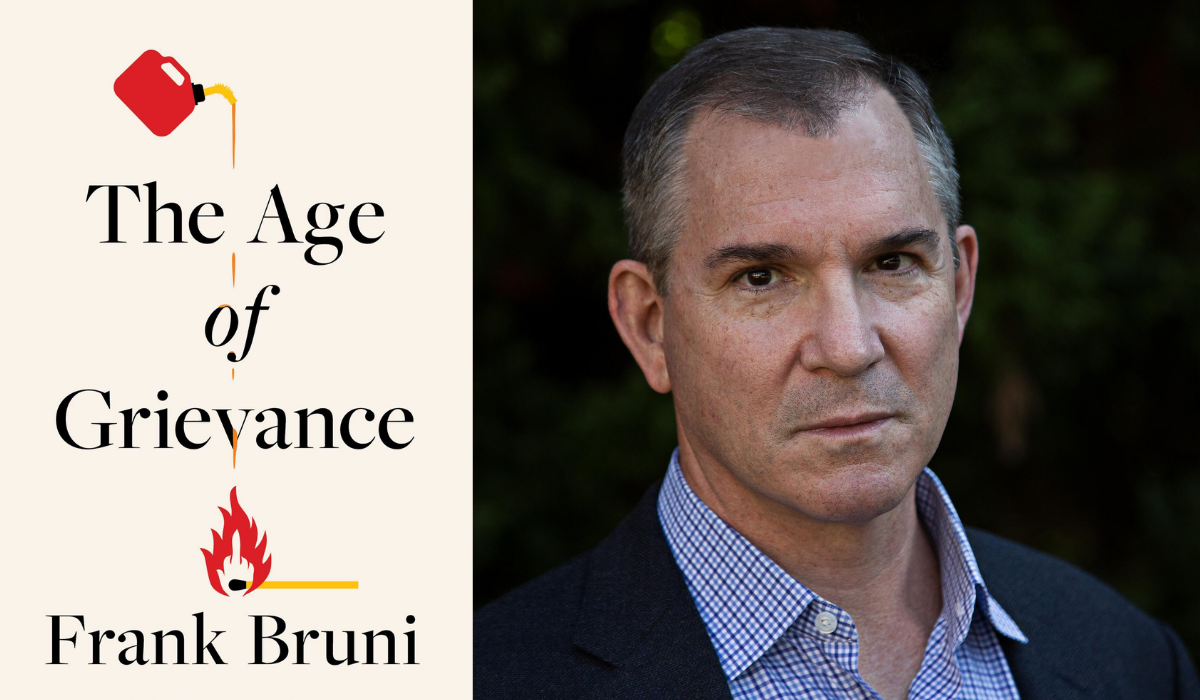In His New Book, Journalist Frank Bruni Shares How to Move Away From the ‘Blame Game’ and Toward THIS Hopeful Salvation
What happens when people take their grievances to extreme and violent lengths? It's a question bestselling author Frank Bruni presents in his new book, The Age of Grievance. Bruni, widely known for his journalistic contributions to The New York Times, believes the majority of Americans are steeped in a troubling binary: They think they are losing because someone else is winning. There is a habit of people entering the public square "with the question, How have I been wronged? Who wronged me? What am I owed? And how do I get back at them?" he tells The Sunday Paper.
Bruni delves into his thesis with his characteristic humility and warmth in The Age of Grievance, providing his unique perspective on our current state and, crucially, how we can progress toward a future that is more compassionate, optimistic, and restorative.
A CONVERSATION WITH FRANK BRUNI
You write, "The blame game was America's most popular sport, and victimhood its most fashionable garb." When did you start to see the ubiquity of grievance in our society?
I began recognizing it and becoming concerned about it as far back as a decade ago. I don't think it's a new phenomenon, but it has intensified so much over the past five to seven years, let's say. And it demands examination and study much more than before.
Donald Trump's 2015—2016 campaign for the presidency was a grievance-fueled campaign like none I've seen in my adult lifetime. And it reflected and exacerbated dynamics in our culture and political life. That led me to write more and more about grievance. And that led me to this book.
You quote your colleague Margaret Renkl saying we are "mired in an America we no longer recognized." How are grievances negatively showing up in our society?
We are in America we no longer recognize because of how prominent, prevalent, and intense this sense of and these claims of grievance are.
There are good grievances, and there are bad grievances. Grievances of the most urgent and righteous kind have created some of our country's greatest and most important social movements. But what we're seeing right now, what I'm seeing right now, is this sort of habit that a majority of Americans have of entering political discussions entering the public square, with the question, How have I been wronged? Who wronged me? What am I owed? And how do I get back at them? And it is such a negative and corrosive approach that takes just causes and mingles them with petty complaints. Or that takes just causes and blows them so wildly out of proportion that they no longer seem warranted, and they're too easily dismissed by the people who want to dismiss them.
It's a really destructive method of behavior. It's an impediment to constructive public dialogue and to governing. And I think if we don't reckon with it, it will do even greater damage than it has, and I'm not sure how much more damage we can afford.
How is this fixation on being wronged and focusing on what we don't have chipping away at our humanity?
This concerns me enormously. There are imperfections in our lives that we must name and attend to. There are shortfalls in this country of equal opportunity and equal access that we absolutely must name, attend to, and act on. But we're too often jumbling those with things that don't warrant the sort of vitriol they get. And with matters that simply become partisan battles as opposed to meaningful disagreements on how to make the country better. Everything is shirts versus skins, us versus them, one team winning at another team's expense. Everything is perceived and described that way, and it pits us against each other to a degree that is antithetical to a healthy democracy.
You do include immense hope in your book. What is the antidote to grievance?
I think humility is the antidote to grievance. And I think we no longer venerate, encourage, and celebrate it to the extent we should. What I mean by humility isn't some theatrical self-effacement. Nor is it some complete lack of self-assertion. Not at all. What I mean is that we're all part of a tradition that is bigger than we are. We need to be cognizant of that to safeguard those traditions. We need to recognize that we have as much investment in the collective good as we do in any individual win. We must recognize that the world doesn't always conform precisely to our liking. If we believe otherwise or insist otherwise, we're never going to be happy, and we're constantly going to be finding excessive faults in our fellow humans.
I think grievance is the product of expecting everything to go your way. And just feeling justified in your enmity toward people you perceive to be standing in your way when they have a different opinion. Humility says I have my values, and I promote them. I have my goals, and I pursue them. But I never for a second believe that I am owed so much more than that than the person on my left or the person on my right. And I recognize their right to have a difference of opinion. And I recognize the importance of engaging with them instead of demonizing them.
To me, that is humble behavior, and that will be our salvation.
For the person who wants to move in the right direction today, what is one solvent for grievance and a step toward humility?
If we try better to understand how we got to this dysfunctional, rancorous place, we can absolutely alter and check our behavior individually and collectively so that we lead our way out of it. But we need to understand where we are. We need to understand how we got here. And once we do that, I think more of us than not will recognize the need to make adjustments, take action, and behave in a more mature and democracy-preserving way. I find all of that hopeful.

Frank Bruni is a journalist and the author of four New York Times bestsellers. He is a full professor at Duke University, where he teaches in the school of public policy. He currently writes his popular weekly newsletter for the New York Times and produces additional essays as one of the newspaper’s Contributing Opinion section. Learn more at frankbruni.com.
Please note that we may receive affiliate commissions from the sales of linked products.



